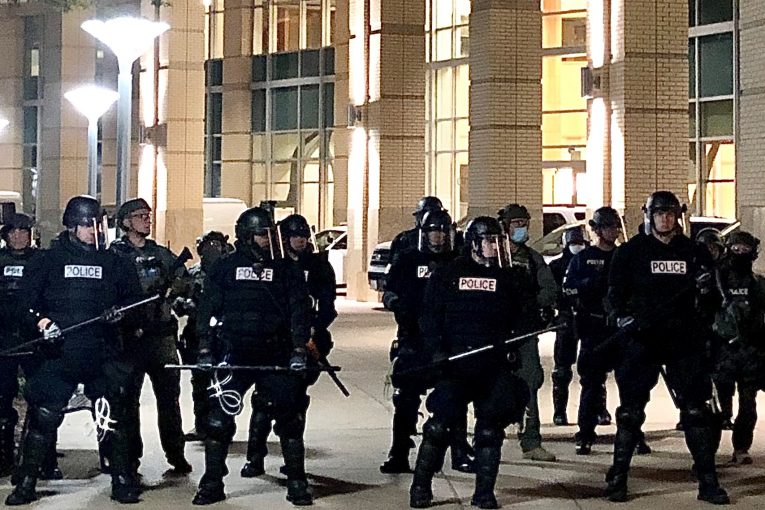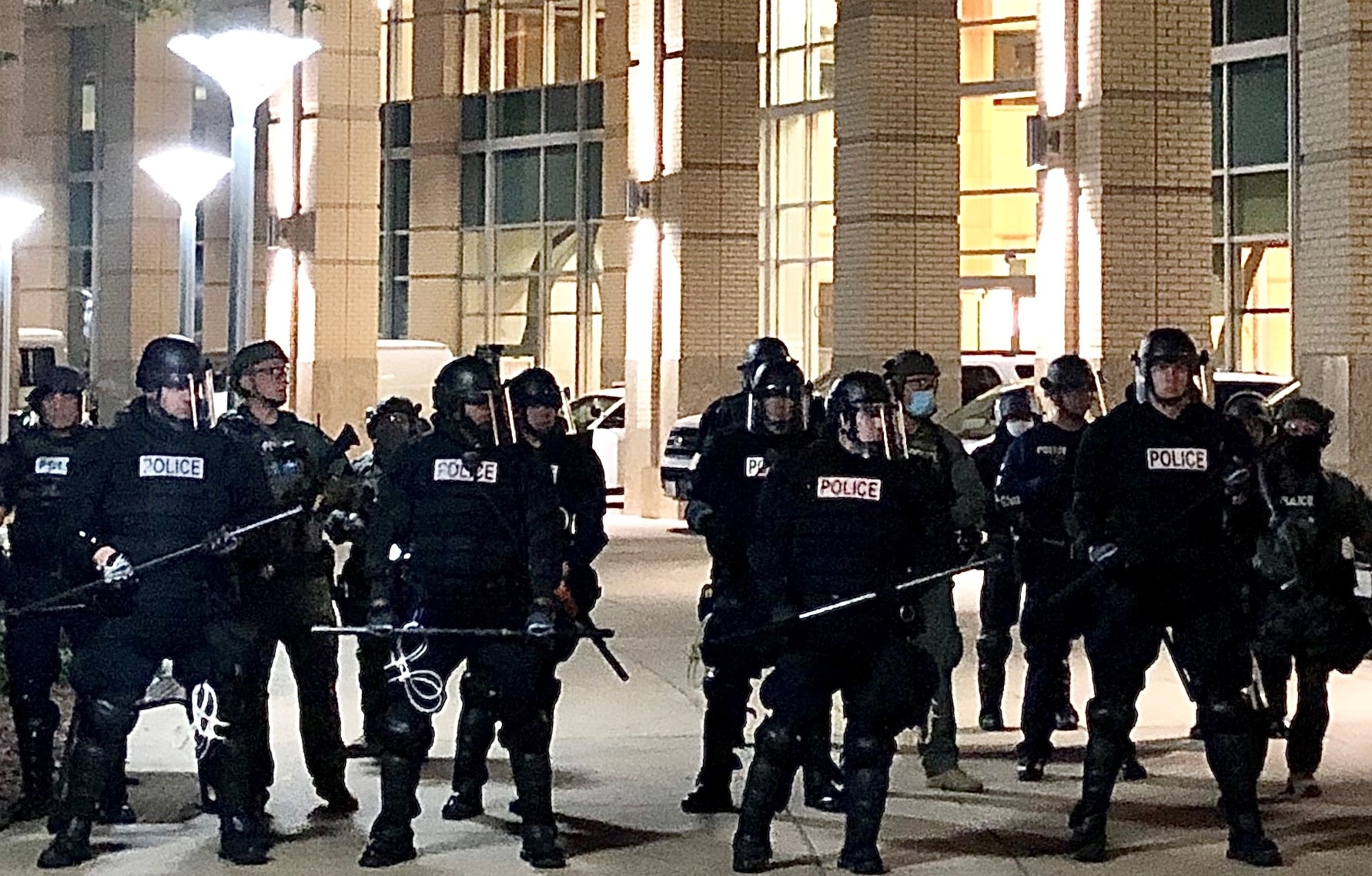

By Crescenzo Vellucci
Vanguard Sacramento Bureau Chief
SACRAMENTO, CA – The city of Sacramento this past week did “what it should have done nearly two years ago,” according to police reform advocates, when it approved a new deadly use of force policy for the Sacramento Police Dept. that mirrors state and San Francisco law.
The City Council replaced a less than acceptable version to the reform community it adopted a month ago, and finally heeded the advice of the much-ignored Sacramento Community Police Review Commission.
The new official language – deemed acceptable by a hesitant SPD – read: “A peace officer is justified in using deadly force upon another person only as a last resort when reasonable alternatives have been exhausted or are not feasible and the officer reasonably believes, based on the totality of the circumstances, that such force is necessary.”
It tossed out the weaker May version as crafted by Mayor Darrell Steinberg that did not follow state law.
Commission chair Mario Guerrero – often frustrated that the work of the commission was being ignored by the City Council – insisted the newer language was crucial, explaining that the phrase “when reasonable alternatives have been exhausted or are not feasible …” is key, and why the mayor’s version failed.
“The commission’s recommendation has context and is balanced and it includes language that progressive reformers really like, which says reasonable alternatives have been exhausted or are not  feasible,” Guerrero told reporters.”
feasible,” Guerrero told reporters.”
The reaction this week by Sacramento’s criminal justice and police reform advocates was in short, “better late than never.”
“On Tuesday, June 1, 2021, the Sacramento City Council did in part what it should have done nearly two years ago – adopt AB 392, aka the Stephon Clark Law. The Sacramento City Council should have taken the lead in adopting the policy much sooner, especially in view of the civil unrest following the murder of George Floyd last summer,” said Norma Nelson, Chair, Criminal Justice Committee, League of Women Voters of Sacramento County.
She added, “However, the community had to fight hard to get the city to comply with the state’s Use of Deadly Force law. The City Council also finally adopted a recommendation from its Community Police Review Commission to adopt a higher standard use of deadly force policy.
“It was important to the League of Women Voters of Sacramento County for the city to comply with state law. Our attempts over the past two years to verify the city’s compliance with the state’s Use of Deadly Force law unveiled areas where the city is not following its own policies relative to its governance process,” said Brenda Main newly-elected LWV Sacramento County President.
“To our dismay, we found wide-spread lack of accountability and transparency to keep the public informed and equip the City Council in making the best governing policy decisions. At the past City Council meeting, we were encouraged by the open discussion among the City Council members about needing staff to provide more analysis and information for them as well as the public and the need for increased transparency.
“We are grateful for the work done by the Police Review Commission, community partners and the community speaking up. There is much more work to do,” Main added.
And, Tifanei Ressl-Moyer, an attorney with Lawyers’ Committee for Civil Rights of the San Francisco Bay Area and who works with Decarcerate Sacramento wants more.
“The new language is designed to comply with the law, but that the law itself doesn’t reflect the will of our most impacted communities. Our community members do not want the police to execute people under any circumstance, but especially not on the street, before a person even has a trial. City leadership should work hard to continue to limit their police’s ability to use deadly force,” Ressl-Moyer argued.
LWV Criminal Justice Committee chair Nelson also wasn’t satisfied despite all the glad-handing.
“The adoption of AB 392, as the minimum standard for Use of Deadly Force is important because it is state law. It represents the foundation by which higher standards for use of deadly force can be built. We found the wordsmithing of AB 392 language to pose more of a risk to the community and officer safety.
“Therefore, AB 392 verbatim language was critical to reduce confusion. Furthermore, since the Judicial Council of California issued jury instructions based upon AB 392, it is important for use of deadly force policy be consistent at those minimum thresholds and that officers are trained to at least meet those minimum requirements.”
Nelson also noted that the city of Sacramento is eligible for state funding for training to “implement AB 392 that will also help in implementing the higher use of deadly force standard recommended by the Police Review Commission. Clearly, there is more work to do. The community deserves better; the city can do better.”
Keyan Bliss, a member of the police review commission, and a community organizer, noted “We on the commission simply asked for the city’s language to comply with state law (AB 392) and go a step further.”
“But I think the language should ultimately reflect how inappropriate it is for police or any law enforcement agent to summarily execute people. From Adel Sambrano Ramos to Robert Aaron Long, there are too many examples demonstrating that police already know how to deescalate violent situations without killing anyone.
“While I sincerely appreciate the city council approving our last resort standard, I have to wonder why it took us three years to approve these recommendations, and what made SacPD shift from fiercely opposing them to supporting these changes?” said Bliss.
The commission – which has made scores of recommendations to the council, only to be ignored for three years – also made other recommendation. But again, the council hasn’t acted. The commission has asked the council to agree to vote on recommendations within three months. The council delayed that vote.
Delayed recommendations include the automatic suspension without pay of officers who use lethal force against unarmed people, and a requirement tht officers obtain a four-year college degree within six years of hiring. The SPD argued that the latter would conflict with the union contract, and officers can’t be suspended until an investigation is completed.
To sign up for our new newsletter – Everyday Injustice – https://tinyurl.com/yyultcf9
Support our work – to become a sustaining at $5 – $10- $25 per month hit the link:




